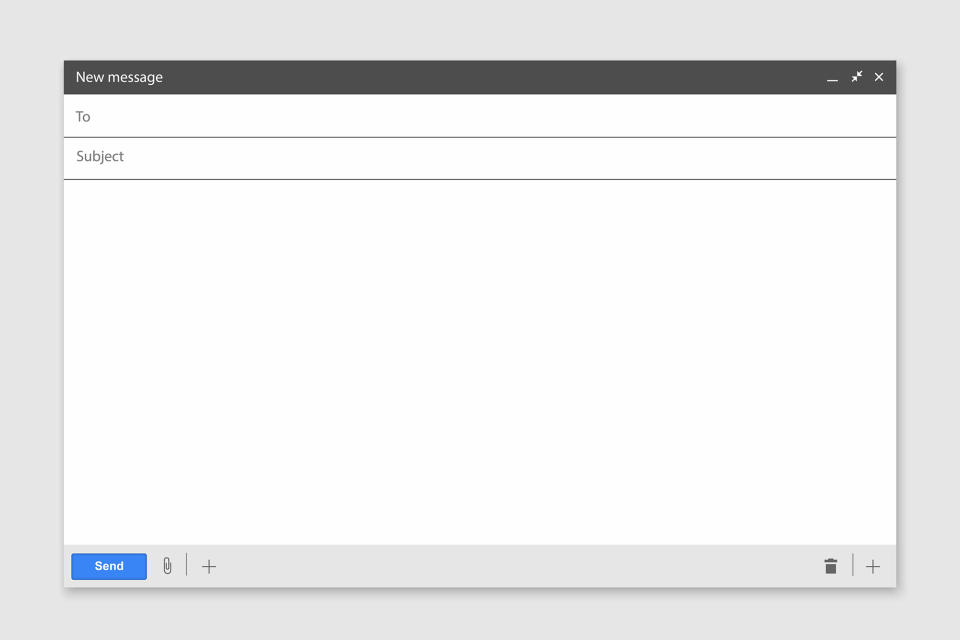How to Send a High-Impact Follow-Up Email After an Interview: Templates & Tips

Congratulations, you’ve done it! You’ve landed, prepared for and attended a job interview for a position you really, really want. There’s nothing better than cheerily hanging up the phone with your interviewer, knowing your answers were on point and that you made a great impression. So that’s it, right? Not so fast. Now comes the time for the crucial final step: sending a follow-up email after the interview.
A follow-up email allows you to thank the interviewer for their time, re-emphasize your interest in the role and re-iterate all the discussion points you both aligned on during your interview. Basically, it’s another way to sell yourself as the ideal candidate for the role, and make sure all the key information is laid out for your interviewer in a concise, cheery message. They’re not technically mandatory, but it’s strongly suggested you send one. It’s the icing on the proverbial cake of the hiring process. What would a cake be without icing?
Today's Top Deals
Anker's #1 Best-Selling Portable Charger & Power Bank Is Now Just $15 — 58,000 Reviews Don't Lie!
This Citrus Juicer Has 35,000 Reviews and Is Now Under $15 for Prime Members
We Loved Testing Bowflex's Adjustable Kettlebells, and Now They Have a Perfect Rating on Amazon
So, how do you send one? What do you say? Don’t worry, we’ve got a full guide to sending a follow-up email after an interview, complete with advice from career experts, experienced hiring managers, and the folks at ZipRecruiter. Follow the steps below and you’ll be just fine.
We’ve also included some sample templates to help you send the perfect follow-up email after an interview, but we also have one piece of crucial advice:
Pro Tip: Don’t overdo it!
The best follow-up emails are concise and to the point. If you find yourself writing a novel or throwing in compliment after compliment, then you’re overthinking it. The best thing you can do? Start over, keep it simple, and don’t overdo it.
How to Send a Follow-Up Email After an Interview
We have a full template for a great follow-up email below, but here are a few general reminders for drafting:
1. Keep It Short, But Not Too Short
You want to keep the follow-up email relatively brief. This isn’t the time to ramble on about all the reasons you should get the job, or answer a bunch of questions you wish they had asked during the interview. It’s also not the time to simply state “thank you!” and sign off. Your follow-up email should be a few brief paragraphs, 3-4 sentences each, and stay focused on the topic at hand.
2. Double Check Name Spelling
This is a small but mighty detail. Make sure you spell their name correctly in your email and get their title right. A small mistake like this could make you seem careless and hasty, neither of which are descriptors you want. Spend an extra 10 seconds after you draft the email ensuring these details are correct.
3. Make It Personal
We’ve included a template below, but make sure you personalize it to your interviewer, the job you want, you and your specific conversation. It shouldn’t read like a generic message you’re sending to 10 different interviewers for a variety of other positions (even if you are).
Julia Pollack, Chief Economist at ZipRecruiter notes that you should “Always emal interviewers and thank them for their time” and that a “winning move is to show your interviewers you were engaged in the conversation by noting something they said and mentioning why it has increased you enthusiasm for the role and for the mission of the company.”
If you’re in the interview process and still aren’t sold on the job prospects ahead of you, there are plenty of resources for finding your next great opportunity on ZipRecruiter‘s website. Follow the link below for more details.

Why is a Follow-Up Email After An Interview Important?
You might be wondering why a follow-up email after an interview is so important. It’s just an email, right? According to Pollack, there are two main reasons a follow-up email after an interview is crucial.
1. To Stay Top of Mind
“Hiring managers are busy people, and for all you know, they may have reviewed 100+ applications. Stand out and help them remember you,” said Pollack.
2. To Convey Enthusiasm
“Psychology studies show that we are attracted to people who convey interest in us. So you can trigger positive feelings and goodwill from hiring managers by showing gratitude and excitement.”
3. To Reflect Your Character
Lastly, and this one is from the SPY team, a thank-you follow-up email after an interview is a nice courtesy, just as a thank-note is after you visit someone’s home or receive a wedding gift from them. It’s nice to express gratitude for someone’s time, especially during the hiring process which can get competitive and impersonal.

Follow-Up Email After Interview Template
Here are a few different templates for sending a follow-up email after an interview. Choose the one that feels most relevant to you and the conversation you had with your hiring manager. Make sure you personalize it and double check all spelling before sending.
Template 1: Brief, Professional, First Round Interview
This is a great template to send after a first round interview, when you’re just getting to know the company, team and job.
Dear [Hiring Manager],
I want to sincerely thank you for dedicating time to interview me earlier today for the [specific role] position.
I really appreciated you answering my questions about the role and giving me more context about the company, department and team. I specifically resonated with the [specific detail about team, role, etc that you liked and why.]
I’m definitely interested in progressing with the hiring process, and hope to hear from you soon.
Best,
[Your Name]
Template 2: Conversational, Second or Third Round Interview
If you’ve progressed past the first round interview, you’ll want to send a slightly meatier follow-up email with a few more details about why you’re more interested in the role and hope to continue meeting members of the team.
Dear [Interviewer],
I wanted to reach out and thank you for spending time with me earlier today. I really enjoyed our talk, and am even more interested in the role than I already was. The details about the team, specific responsibilities you outlined and overall mission of the role all sound very intriguing to me.
I specifically want to point out [point they made about the job, work, etc], it really resonated with me and made me even more enthusiastic to continue with the hiring process.
I hope to continue discussing my qualifications and why I’m right for this role in the future.
Sincerely,
[Your Name]
What About Physical Follow-Up Letters?
You may have heard stories of people who have skipped the standard interview follow-up email template and instead sent a personalized piece of snail mail. A personal letter, possibly on your very own stationary, has a certain old-school charm. But that doesn’t mean it’s a good idea.
Unless you have a pre-existing relationship with the interviewer, then we actually don’t recommend taking this additional step. There’s a chance the interviewer could appreciate the gesture, but there’s an equal chance they’ll see it as overeager.
Sure, you may have seen TikToks or viral videos about creative job applications (did you see the one where an applicant sent their resume in a box of donuts?), but usually these ideas are too clever by half.
Best Practices For a Follow Up Email After Interview
1. Open With a Formal Address
Even if you had a good rapport with the hiring manager over the phone, it’s a good idea to err on the formal side in your follow-up email. It shows respect, and that you’re aware of decorum and proper form in the hiring process. Unless they explicitly ask you to address them by their first name or a different title, Mr. Mrs. Ms. and then their last name is a best practice.
2. Send Separate Emails to Different Hiring Managers
If you interviewed with multiple people during a given round, send them all separate emails. Don’t group them all onto one email or CC anyone. They all dedicated time to interviewing you and deserve their own recognition.
3. Avoid Attachments
It might be tempting to attach your resume or cover letter, or additional materials from your portfolio, but it’s best to only send those things along if the hiring manager has requested them. Avoid giving them extra to do, since they have a lot on their plate already as it is. If you have formatted your resume and cover letter correctly, they already have everything they need to make a decision about you and your hiring potential.
4. Send The Follow Up Email Promptly After The Interview
Don’t dilly dally when it comes to sending the follow up email after the interview. 24 hours is the absolute cutoff mark, but it’s best to send it about an hour or two after the interview. Spend time on it, but not too much time. The gesture in and of itself is the most important part, and you want to stay top of mind, so get a concise draft written and send it before you have a chance to second guess yourself.
Phone vs. In-Person Interview, Is The Follow Up Email After Interview Different?
No, a follow up email after an interview should follow the formats above whether you interviewed in person or not. In-person interviews may result in meatier, more substantive follow-up emails since you probably spent more time with your interviewers, but interviews over the phone should be treated with the same level of respect and formality.
In our increasingly remote-friendly world, more and more interviews are happening over the phone or Zoom, so it’s that much more important to treat these interviews with the same level of sophistication as you would a full day in-person onsite at a company.
Regardless of whether you spent 10 minutes on the phone with a company’s recruiter or spent a half-day onsite with your whole potential future team, send a follow-up email.
Is a Follow-Up Email Different After a First, Second or Third Round Interview?
You might be wondering if a follow-up email should look different after the first, second or third round interview, if you get that far. The answer is, sort of, but you should still follow the same format.
All of them should include a formal address, a sincere thank you for their time, a personalized anecdote from the interview and emphasized enthusiasm for the role. The more interview rounds you go through, the more personal details you have to share in the follow-up email, so the longer the email may be.
Don’t go overboard and let the email get too lengthy, but a third round interview may warrant a few more sentences.
You’ve Sent a Follow-Up Email After Your Interview, Now What?
Now, you can bask in the glory of an interview well done. If nobody responds right away, don’t worry. Hiring managers are busy people, and they’re most likely hiring for multiple roles at once.
They may respond a few days or even a week later. Regardless, it’s a worthwhile gesture for establishing yourself as a respectful candidate and potential future teammate, even if your application for the current role doesn’t result in a job offer.
If you’re on the hunt for a new job, or just want to peruse the latest open positions, salaries and most sought-after companies in your industry, you can find all of that and more on ZipRecruiter.
More Top Deals from SPY

